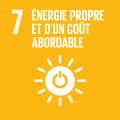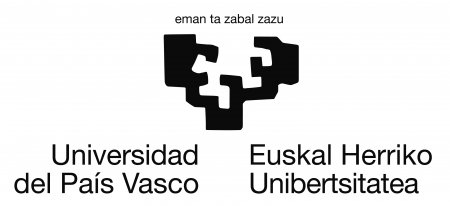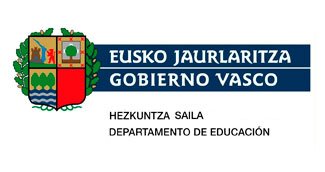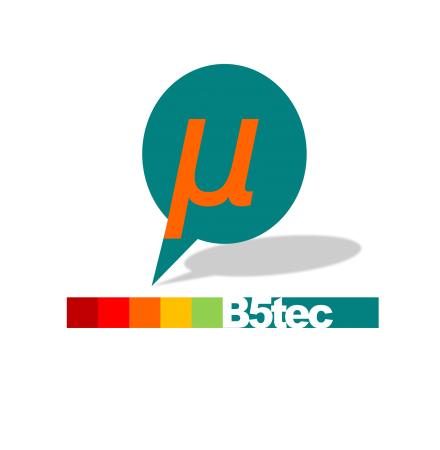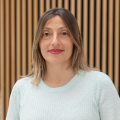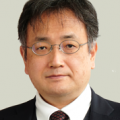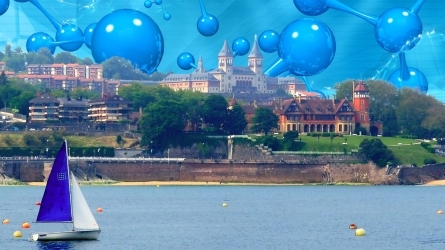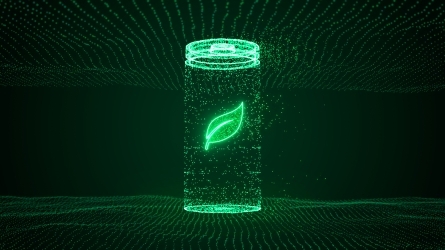
Organic Battery Days 2023
The Organic Battery Days is a yearly reference event for organic battery experts. Topics include design and synthesis of organic electroactive materials, study of these materials in various electrochemical systems (e.g., rechargeable batteries, flow cells), and electrolytes for organic electrodes.
Descripción
Bienvenidos/as a la 6ª edición de los encuentros Organic Battery Days en la Universidad del País Vasco/Euskal Herriko Unibertsitatea (UPV/EHU), que se celebrarán los días 7 y 8 de junio de 2023. Las jornadas se celebraron por primera vez en 2017, en Uppsala (Suecia), y posteriormente en Tianjin (China), Jena (Alemania), Waseda (Japón) y Houston (EE.UU.). En 2023, el evento se celebrará por primera vez en Donostia-San Sebastián.
Organic Battery Days es un evento anual de referencia para expertos/as en baterías orgánicas. En el encuentro se debatirá sobre diseño y síntesis de materiales electroactivos orgánicos, estudio de estos materiales en diversos sistemas electroquímicos (por ejemplo, baterías recargables y celdas de flujo) y electrolitos para electrodos orgánicos. El encuentro será presencial.
Nuestro estudiantado de postgrado y jóvenes profesionales han ofrecido generosamente su tiempo y talento, para ayudar a planificar y llevar a cabo el encuentro. Sus ideas e iniciativa han resultado inestimables para garantizar que la participación en el evento sea provechosa, y están dispuestos/as a ayudarte durante tu estancia.
Esperamos que sea un encuentro inspirador, y que genere ideas innovadoras en este apasionante campo de la investigación y el desarrollo.
Atentamente,
Nerea Casado y David Mecerreyes OBD2023 Chairs
Comité Organizador Local
- David Mecerreyes (POLYMAT-UPV/EHU)
- Nerea Casado (POLYMAT-UPV/EHU)
- Edurne Gaston (POLYMAT-UPV/EHU)
- Tijs Lap (POLYMAT-UPV/EHU)
- Nicolas Goujon (POLYMAT-UPV/EHU)
Comité Científico Asesor
- Daniel Brandell (Uppsala University, Suecia)
- Ho Seok Park (Sungkyunkwan University, Corea)
- Ji Eon Kwon (Korea Institute of Science and Technology, Corea)
- Jun Chen (Nankai University, China)
- Kenichi Oyaizu (Waseda University, Japón)
- Masaru Yao (AIST, Japón)
- Matthieu Becuwe (Université de Picardie Jules Verne, Francia)
- Philippe Poizot (Université de Nantes, Francia)
- Ulrich S. Schubert (Friedrich Schiller University Jena, Alemania)
- Yan YAO (University of Houston, EE.UU.)
Taller pre-congreso
El taller “From R&D activities in next-generation batteries to industrial exploitation” tendrá lugar como evento satélite a Organic Battery Days 2023 el martes, 6 de junio dem en el Centro Joxe Mari Korta de San Sebastián. Organizado por IMDEA Energy junto con POLYMAT, este acto se celebrará en el marco del proyecto europeo POLYTSORAGE-ETN.
Este taller práctico, de medio día de duración, está dirigido a estudiantes de doctorado y jóvenes investigadores. En él se tratarán cuestiones de interés para investigadores del ámbito industrial, incluyendo algunas relativas a los derechos de propiedad intelectual, la explotación comercial de los resultados, emprenderuría y creación de start ups, liderazgo en la industria, la gestión de la investigación industrial, la transferencia tecnológica, y demás. El taller incluye una ponentes internacionales con amplia experiencia en estos temas.
Los participantes de OBD 2023 serán bienvenidos en el taller. Los que deseen asistir deben registrarse por separado a través del siguiente enlace:
https://www.polystorage-etn.eu/6th-polystorage-workshop-from-rd-activities-in-next-generation-batteries-to-industrial-exploitation/
Objetivos
El objetivo de este encuentro es reforzar la comunicación y cooperación entre expertos/as de organizaciones académicas, institutos de investigación y empresas de producción, así como intercambiar conocimientos y experiencias sobre los avances más recientes en el campo de las baterías orgánicas. En el encuentro se debatirá sobre diseño y síntesis de materiales electroactivos orgánicos, estudio de estos materiales en diversos sistemas electroquímicos (por ejemplo, baterías recargables y celdas de flujo) y electrolitos para electrodos orgánicos. El encuentro será presencial.
LLAMAMIENTO A LA PRESENTACIÓN DE RESÚMENES - PLAZO AMPLIADO
Sigue abierto el plazo de presentación de resúmenes OBD2023 para dos tipos de presentación: presentación oral y presentación en póster. Fecha límite ampliada: 30 de marzo de 2023.
Para enviar tu propuesta, descarga el modelo de resumen proporcionado, rellénalo y adjúntalo al formulario de presentación de resúmenes, indicando el tipo de presentación que prefieres.
A mediados de abril se notificará cuáles han sido las ponencias seleccionadas. Las personas ponentes deberán inscribirse antes de finales de abril, y así confirmar sus presentaciones.
Tiempos de presentación:
Es muy importante limitar los tiempos de presentación según la modalidad asignada a su participación:
- Conferencias Plenarias: 45 min (incluyendo 5 min de preguntas)
- Conferencias invitadas: 25 min (incluidos 5 min de preguntas)
- Conferencias orales: 25 min (incluidos 5 min de preguntas)
- Presentaciones tipo Flash: 3 minutos, no se permiten preguntas
Instrucciones para presentaciones de póster Flash
Las presentaciones de póster flash comprenden la presentación oral flash (3 minutos) y la tradicional exposición de su trabajo en un póster de papel (las medidas del póster serán A0 (80 cm de ancho y 110 cm de alto).
Para la preparación de la presentación oral flash, es importante tener en cuenta que presentará el trabajo de su póster en breve en un máximo de 4 diapositivas, incluida la diapositiva del título. El objetivo de la presentación flash es atraer la atención de la audiencia para que visiten su póster y le hagan preguntas allí. Respete la duración de 3 minutos de su presentación debido a la necesidad de acomodar a un gran número de participantes en la sesión.
Público objetivo al que está dirigida la actividad
- Alumnado universitario
- Profesionales
Directoras/es

David Mecerreyes Molero
POLYMAT
Prof. David Mecerreyes, Ikerbasque Research Professor at the University of the Basque Country (Spain), is the Head of the Innovative Polymers Group at POLYMAT (www.polymat.eu) , and currently the Scientific Vice-Director of this research centre. His research focuses on the synthesis and application of poly(ionic liquid)s, conducting polymers and redox polymers for energy and bioelectronics. His contributions to research in these fields have been recognized with several awards, including an ERC Starting Grant in 2011 and a Research Excellency Award in 2020 by the Spanish Royal Chemical Society (RSEQ). He is the co-author of >340 publications in peer-reviewed journals. He serves a member of the international advisory boards of ACS Macroletters, ACS Applied Polymer Materials, Polymers and Materials Horizons.
Nerea Casado Pérez
POLYMAT
Dr. Nerea Casado is an Ikerbasque Research Fellow at POLYMAT, University of the Basque Country. Dr. Nerea Casado earned her B.Sc. in Chemistry and M.Sc. in Applied Chemistry and Polymeric Materials from the University of the Basque Country, Spain. In 2017, she defended her PhD Thesis at POLYMAT Institute under the supervision of Prof. David Mecerreyes on Innovative Poly(3,4-ethylenedioxythiophene) materials for energy storage. During her career, she has conducted several secondments at Energy Centers such as Deakin University (Australia) and CIC EnergiGUNE (Spain). Her research interests focus on the synthesis and application of functional polymer composites, having mixed ionic-electronic conductivity and electroactivity, for energy storage and bioelectronics applications. She has published 34 research papers, 3 book chapters and edited 1 book. She is also coauthor of 3 patents in collaboration with Toyota Motor Europe.
Ponentes
Matthieu Becuwe obtained his PhD in organic and hybrid chemistry at the Université of the Littoral, France, in 2009. After two postdoctoral stays dedicated to the synthesis of i) SiO2/TiO2-based hybrid materials for iron’s sensing (LRCS-UPJV, Amiens) and ii) calcium silicates nanomateirals for concrete applications (LCMCP-UPMC, Paris), he joined the LRCS as assistant professor in 2011 and is now professor (since 2022). His researches are oriented towards the elaboration of organic-based materials for energy storage applications like electroactive molecular materials or hybrid/polymeric composite for Li-ion battery electrodes and electrolytes respectively. https://www.lrcs.u-picardie.fr/equipe/permanents/detail/matthieu-becuwe/
I finished my PhD in 2016 on the topic of application of organic materials into magnesium metal anode batteries under supervision of prof. dr. Robert Dominko. After my PhD, I expanded my research interests into the field of Al and Ca metal anode batteries, where organic cathode can be, similarly as in Mg, used to surpass limitations of inorganic cathode hosts. At the same time, I try to apply various characterization techniques (operando ATR-IR, SEM-EDS, XRS, EIS) to elucidate the electrochemical mechanism governing the performance of multivalent anode-organic cathode batteries.
Daniel Brandell received his PhD in 2005 at Uppsala University, Sweden, on a thesis comprising Molecular Dynamics studies of polymer electrolytes. After post-doctoral studies in Estonia and the USA, he returned to Uppsala. In 2016, he was appointed Professor in Materials Chemistry. Since 2020, he coordinates the research centre “Batteries Sweden”. In his research, he combines computational chemistry spanning DFT calculations, MD simulations and FEM electrochemical modelling with experimental activities, with a clear focus on Li-ion batteries and other next-generation battery chemistries such as Na-ion, solid-state systems, Li-Sulfur, Organic batteries, etc. He has published >200 papers in the field and holds several research grants, including an ERC consolidator grant from 2017 on polymer electrolytes.
Birgit Esser is full professor of Organic Chemistry at Ulm University, Germany. She obtained her Ph.D. in 2008 at the University of Heidelberg. After postdoctoral studies at the Massachusetts Institute of Technology as Leopoldina fellow from 2009–2012, she joined the University of Bonn, Germany, as Liebig and later Emmy-Noether junior group leader. From 2015–2021 she was associate professor of Molecular/Organic Functional Materials at the University of Freiburg, Germany. Her research focusses on organic electrode materials for batteries, including post-lithium batteries, the synthesis of hoop-shaped, conjugated π-systems as well as small molecule semiconductors and photocatalysis.

Jean Francois Gohy
Université catholique de Louvain
After a PhD in anionic polymer synthesis at the University of Liège (Belgium) and a post-doc on supramolecular polymers at the Eindhoven University of Technology, J.-F. Gohy started his scientific career at the Université catholique de Louvain in 2003 where he is now Full Professor and President of the IMCN institute. His topics of interest are stimuli-responsive nanoobjects from block copolymers, nanostructured polymer films, light-responsive polymers, stimuli-responsive gels, redox polymers for organic radical batteries and solid polymer electrolytes.

Nicolas Goujon
Dr. Nicolas Goujon is a Marie Skłodowska-Curie Fellow at POLYMAT, University of the Basque Country. In 2016, he started his journey in the energy storage world as an associate research fellow in the research group of Prof. Forsyth (Deakin University Australia), working on solid polymer electrolyte for lithium metal batteries. Then, Dr. Nicolas Goujon joined POLYMAT (Spain) in 2019, where he was leading the redox polymer team for energy storage application of the research group of Prof. Mecerreyes. He is currently involved in the supervision of three PhD students, who are working on organic electrode materials for applications in batteries or pseudo-capacitors. He have co-authored 25 articles in peer-reviewed journals, 1 patent and 1 Book Chapter. His current h-index is 13 with an overall 791 citations.
Zhongfan Jia is an Associate Professor of Chemistry at Flinders University, Australia. He graduated from Fudan University with a PhD in Polymer Chemistry and Physics in 2007, followed by a postdoctoral position in the Centre for Advanced Macromolecular Design (CAMD) at the University of New South Wales. From 2009 to 2020, he was a senior research fellow at the Australian Institute for Bioengineering and Nanotechnology (AIBN), the University of Queensland. He is a recipient of the Australian Research Council Future Fellow and Advanced Queensland Industry Fellow, and later was a Lecturer at the University of New England. His research interests include polymer chemistry, electrochemistry, biomaterial, catalysis, and energy storage.
Ji Eon Kwon received his BS degree in Materials Science and Engineering (MSE) from Seoul National University (SNU) in 2006. He obtained his Ph. D. degree from SNU under the guidance of Prof. Soo Young Park with a thesis on a special class of organic fluorophores showing Excited-State Intramolecular Proton Transfer (ESIPT) in 2014. He was appointed Korea Presidential Post-doc. Fellow in 2016 with a grant for a 5-year research project to develop organic electrode materials for future batteries. He is currently a Senior Researcher at Korea Institute of Science and Technology (KIST).
Jodie L. Lutkenhaus is holder of the Axalta Chair in the Artie McFerrin Department of Chemical Engineering at Texas A&M University. Lutkenhaus received her B.S. in Chemical Engineering in 2002 from The University of Texas at Austin and her Ph.D in Chemical Engineering in 2007 from Massachusetts Institute of Technology. Current research areas include polyelectrolytes, redox-active polymers, energy storage, and composites. She has received recognitions including World Economic Forum Young Scientist, Kavli Fellow, NSF CAREER, AFOSR Young Investigator, and the 3M Non-tenured Faculty Award. Lutkenhaus is the Deputy Editor of ACS Applied Polymer Materials and a member of the U.S. National Academies Board of Chemical Sciences & Technology.
Rebeca Marcilla received her PhD in Chemistry in 2006 from the University of the Basque Country (UPV/EHU) in the field of ionic liquids and polymers with application in electrochemistry and nanotechnology. After a postdoctoral stay at the University College London she joined CIDETEC (Centro de Tecnologías Electroquímicas, Donostia-San Sebastian). In 2010 she moved to the Unit of Electrochemical Processes IMDEA Energy (Madrid) and in 2015 she became Senior Researcher. During her fruitful scientific career, she has acquired proven experience in advanced materials for energy storage (eg. ionic liquids, polymer electrolytes, redox-active polymers, etc) and in next-generation batteries including organic batteries and redox flow batteries). As a result, she has co-authored 7 patents (1 of them licensed to a private company) and published more than 115 articles, achieving an h-index of 44. She has supervised 12 PhD thesis (6 presented+6 on-going) and several postdoctoral researchers. In 2017, she was awarded with a ERC Consolidator Grant to develop Membrane-free Redox Flow Batteries. Dr. Marcilla is member of the Governing Board of the Electrochemistry Group of the Spanish Royal Society of Chemistry (GEE-RSEQ).
Vijay Murugesan is a staff scientist and group leader for the Materials Sciences group in PNNL. His research focuses on charge/mass transfer across heterogeneous interfaces and materials. He frequently partners with the DOE Office of Science, Basic Energy Sciences program, as well as the DOE Office of Electricity to explore chemical stability and resiliency of energy storage materials. Currently, he is serving as focus area lead for the Joint Center for Energy Storage Research, DOE‘s energy storage hub where he leads a multidisciplinary team of scientists across national labs and academic institutions. Murugesan has published more than hundred peer-reviewed articles in the field of energy storage.
PhD, Waseda University (1995), Lecturer, Waseda University (1997), Associate Professor, Tokyo University of Science (2003), Associate Professor, Waseda University (2007), Professor (2012-present).
Patil pursued his PhD from University of Liege, Belgium in 2017, under the supervision of Prof. Christine Jerome. Then he joined IMDEA Energy Institute in November 2017 as a postdoctoral position in the group of Electrochemical Processes Unit. Since January 2023, he holds a Senior Assistant Researcher position. His research interests focus in the field of organic electrochemical energy storage, with special enforcement to emphasize on an integrated approach of synthetic polymer chemistry (redox-active polymers and conducting polymers) and applied electrochemical technologies (metal-polymer and all-polymer batteries). He is also recipient of Juan de la Cierva-formacion, incorporación and HE-MSCA Postdoctoral Fellowships.
Philippe Poizot is currently a Professor of Chemistry at Nantes University (IMN-CNRS, Nantes, France), and has been working on electrochemical systems for the past 25 years. He obtained a Ph.D. degree in Materials Science at the University of Picardy Jules Verne (LRCS, Amiens, France) in 2001. Appointed later Associate Professor in Chemistry at the same University, he proposed in 2007 the concept of “renewable” batteries by promoting novel electrode materials based on redox-active organic compounds deriving from biomass. His current research topics are mainly focused on rechargeable batteries and the development of organic batteries. He is a recipient of the Bronze Medal of the French Society for Encouragement and Progress (2002) and honorary Member of the Institut Universitaire de France. He is author of more 100 publications and co-inventor of 14 patents.
Dr. Yan Yao is Hugh Roy and Lillie Cranz Cullen Distinguished Professor at the University of Houston. He received his Ph.D. in Materials Science and Engineering from UCLA in 2008 and completed postdoctoral studies at Stanford University after two years industrial experience. He began his career at the University of Houston in 2012, and was promoted to Full Professor in 2020. His research focuses on developing innovative materials and chemistries from low-cost, abundant resources, and he is also recognized for his work on an in situ diagnostic platform for solid-state batteries. He has received numerous awards, including the Top 1% Highly Cited Researchers, Senior Faculty Research Excellence Award, Office of Naval Research Young Investigator Award and the Cullen College of Engineering Professorship. He is a senior member of the National Academy of Inventors and IEEE, a Fellow of the Royal Society of Chemistry.
Eduardo obtained his PhD on asymmetric organocatalysis at UPV/EHU under the mentorship of Prof. Jose Luis Vicario. As a graduate student he visited Berkeley for a short stay at the Toste Group to learn about fluorination chemistry in 2015. After his PhD. he joined CIC energiGUNE as a postdoctoral researcher in the Polymer electrolytes research line. Since then, he was worked in the development of solid-state lithium batteries and aqueous organic redox flow batteries. He is currently leading the Redox Flow Batteries research line and coordinates the activity on organic materials for secondary batteries, such as conductive salts, active materials, and additives.
Ulrich S. Schubert is full professor, head of the Laboratory of Organic and Macromolecular Chemistry (IOMC), and director of the Center for Energy and Environmental Chemistry Jena (CEEC Jena) at the Friedrich Schiller University (FSU), Germany. His main research activities in the area of polymers and energy deal with redox-active polymeric materials as active materials for polymer-based batteries. Ulrich S. Schubert is founder and director of the Jena Center for Soft Matter (JCSM) and the Center for Energy and Environmental Chemistry Jena (CEEC Jena). Besides Ulrich S. Schubert’s academic research activities (>1’100 articles with >50’000 citations, H-index 105 SCOPUS 06/2020)), he holds >30 patent applications and has initiated four spin-off companies.

Hui Zhan
College of Chemistry &Molecular Sciences, Wuhan University
Hui Zhan received her PhD degree from Wuhan University in 2002, then worked there as a Lecturer, she became a professor in 2014. During the tens of years of research, she focused on the electrochemical energy storage, and had over 60 peer reviewed publications in organic electrode material and non-aqueous battery.
Precios matrícula
| Matrícula | Hasta 07-06-2023 |
|---|---|
| 300,00 EUR |
Lugar
Palacio Miramar
Pº de Miraconcha nº 48. Donostia / San Sebastián
Gipuzkoa
Palacio Miramar
Pº de Miraconcha nº 48. Donostia / San Sebastián
Gipuzkoa
Objetivos de desarrollo sostenible
Desde UIK queremos aportar a la consecución de los Objetivos de Desarrollo Sostenible (ODS) 2030. Para ello, hemos identificado a qué objetivos contribuyen nuestros programas. Puedes consultar los objetivos a continuación.
La Agenda 2030 es la nueva agenda internacional de desarrollo que se aprobó en septiembre de 2015 en el seno de Naciones Unidas. Esta Agenda pretende ser un instrumento para la lucha a favor del desarrollo humano sostenible en todo el planeta, cuyos pilares fundamentales son la erradicación de la pobreza, la disminución de las vulnerabilidades y las desigualdades, y el fomento de la sostenibilidad. Es una oportunidad única para transformar el mundo antes del 2030 y garantizar los derechos humanos para todas las personas. Esta agenda marca 17 objetivos.

7 - Energía asequible y no contaminante
Garantizar el acceso a una energía asequible, fiable, sostenible y moderna para todas las personas. Cuestiones clave: acceso universal, aumento de la proporción de energías limpias, eficiencia energética, investigación, promoción de la inversión en infraestructuras energéticas y tecnologías limpias, servicios energéticos modernos y sostenibles.
Más información